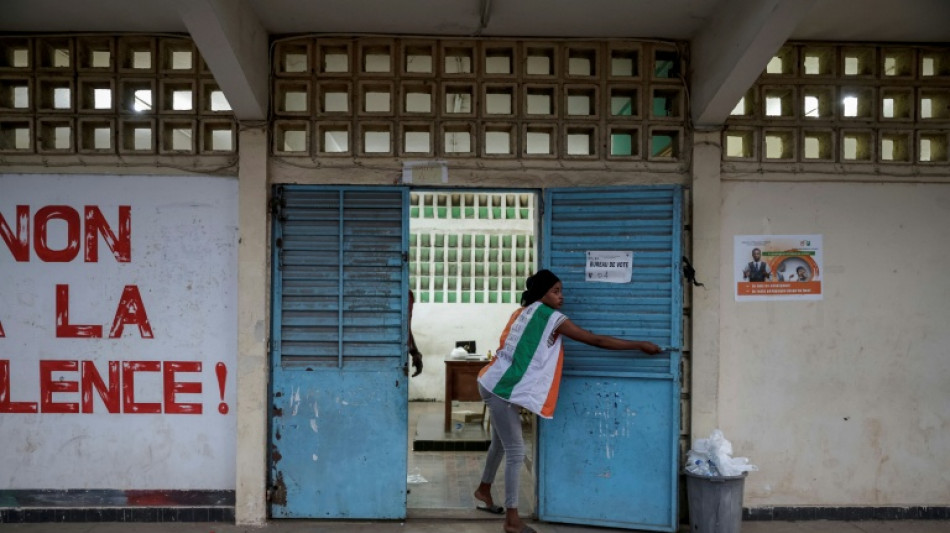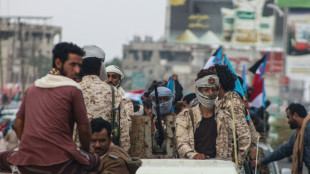
Ouattara set for fourth term after Ivory Coast presidential vote

Voting ended Saturday in Ivory Coast for a new president, with incumbent Alassane Ouattara expected to win a fourth term against a divided opposition further hobbled by the barring of two leading candidates.
One senior opposition figure has already dismissed the vote as "electoral robbery".
Ouattara, 83, has wielded power in the world's top cocoa producer since 2011, when the country began reasserting itself as a west African economic powerhouse.
Nearly nine million Ivorians were eligible to vote in the polls, which closed at 6:00 pm (1800 GMT), choosing between five contenders.
Turnout was expected to be a key factor. Polling stations in the economic capital Abidjan visited by AFP in the afternoon were not crowded but there were many more voters in the second city Bouake, a Ouattara stronghold.
Roads were cut off in some parts of the country's south and west but there were no reports of disturbances at polling stations.
In Lopou, a town of some 9,000 people west of Abidjan, the mood was tense after police fired tear gas to quell protests against Ouattara before election day.
"There will be no voting here in Lopou," an elderly man said.
"Ouattara's candidacy is unconstitutional," added a youth.
Many voting centres in pro-opposition areas were nearly empty, AFP reporters said.
- Banned rallies -
Ouattara's leading rivals -- former president Laurent Gbagbo and Credit Suisse ex-CEO Tidjane Thiam -- have been barred from standing, Gbagbo for a criminal conviction and Thiam for acquiring French nationality.
With the opposition calling for protests and unrest turning deadly in recent days, the government has slapped a night-time curfew in some areas and deployed 44,000 security forces.
"It's the first time that I'm voting and I'm happy to be able to express my choice," said Ben Kone, a young voter in the central city of Bouake.
"I didn't vote," said 26-year-old student Olivier in the working-class Blockhaus district of Abidjan. "My candidate was barred.
"Ouattara has already been elected," he added, criticising what he said was the authorities' use of violence and their crackdown on free speech.
Four people, including one policeman, have died in political unrest in recent weeks. On Monday, an independent electoral commission building was torched.
The government has responded by banning demonstrations, and the courts have sentenced several dozen people to three-year jail terms for disturbing the peace.
Security forces were deployed across the country of 30 million to keep protests in check, especially in former opposition fiefdoms in the south and west.
The night-time curfews were in place on Friday and Saturday in the Yamoussoukro region, where the political capital is located.
Authorities say they want to avoid a repeat of unrest surrounding the 2020 presidential election, in which 85 people died.
- 'Electoral robbery' -
After being re-elected in 2015 with 83 percent of the vote, Ouattara had promised not to run again given the two-term presidential limit.
But when his chosen successor, Amadou Gon Coulibaly, died suddenly, Ouattara changed his mind, buoyed by a revision of the constitution that he argued reset his number of terms to zero.
On Wednesday, former president Gbagbo condemned the poll as a "civilian coup d'etat" and "electoral robbery".
"Those who could have won have been eliminated. I do not accept this," he said.
None of the four rival candidates represents an established party, nor do they have the reach of Ouattara's RHDP.
Ouattara came to power following the 2010-2011 presidential clash between him and Gbagbo, which cost more than 3,000 lives among their supporters.
Its critics say this growth has only benefitted a small portion of the population and has been accompanied by a spiralling cost of living.
F.Edwards--SFF

 London
London

 Manchester
Manchester
 Glasgow
Glasgow
 Dublin
Dublin
 Belfast
Belfast
 Washington
Washington
 Denver
Denver
 Atlanta
Atlanta
 Dallas
Dallas
 Houston Texas
Houston Texas
 New Orleans
New Orleans
 El Paso
El Paso
 Phoenix
Phoenix
 Los Angeles
Los Angeles



